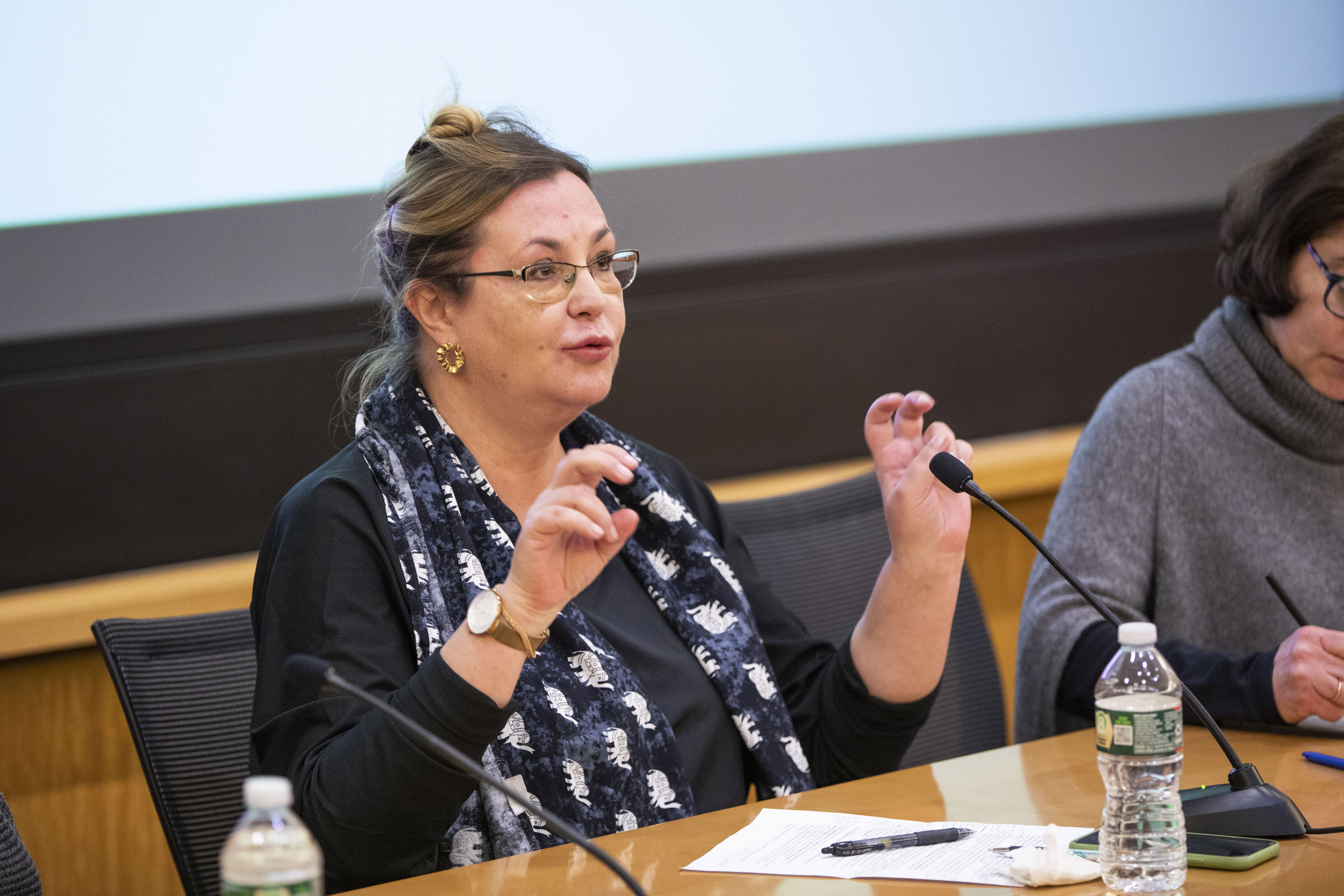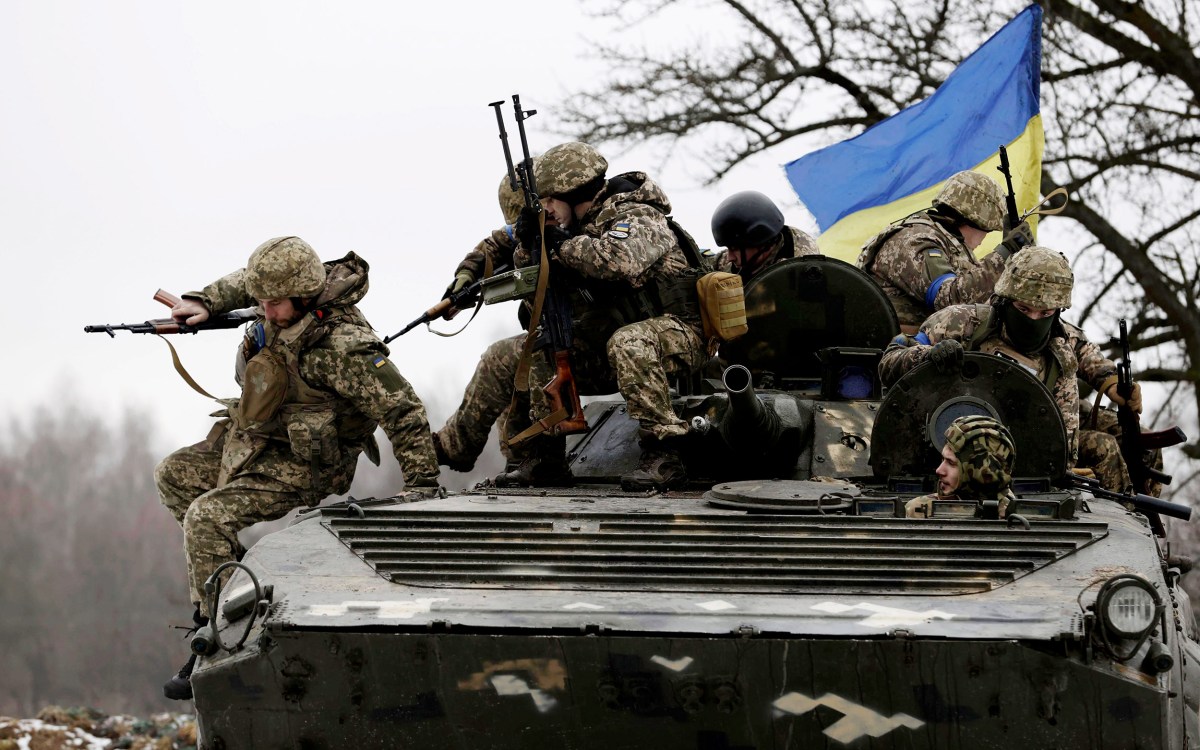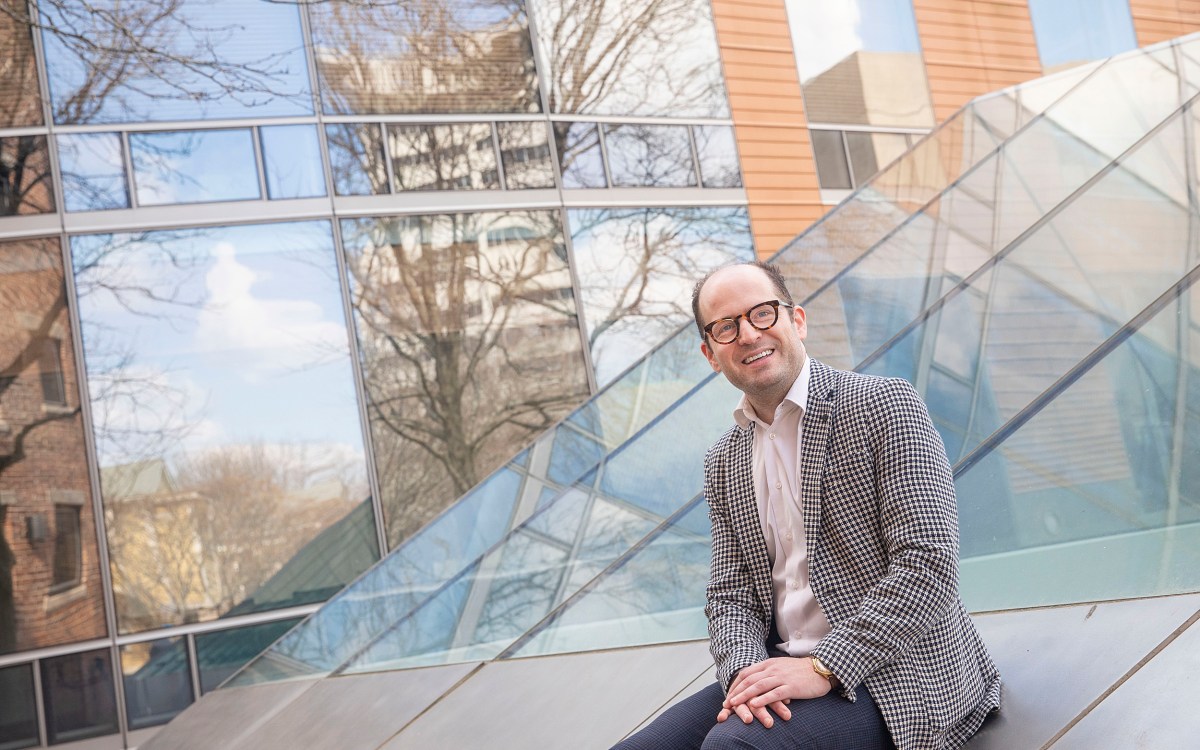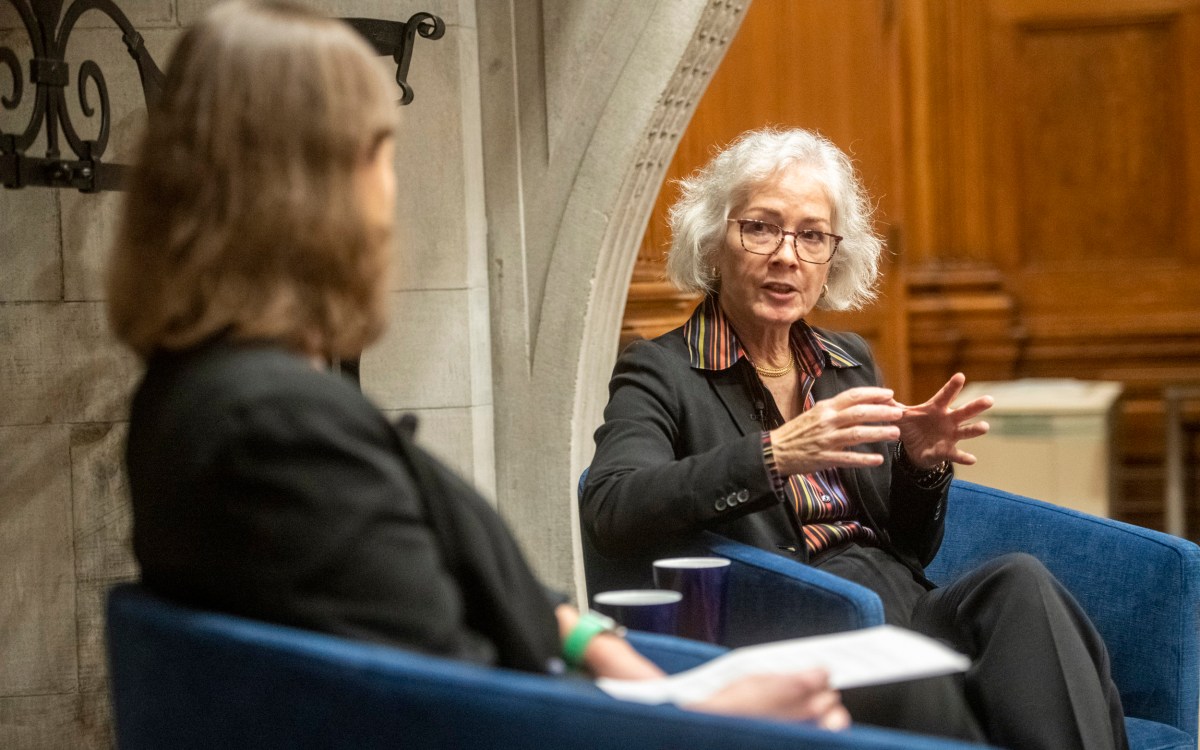
Visiting scholar Irina Busygina said the absence of widespread protests in the face of heavy troop losses is not a sign that Russians are satisfied with the way the war is going. “But can they protest when they don’t know how to do that?” she said.
Photo by Scott Eisen
Russia seems vulnerable. Is Putin?
As fighting in Ukraine intensifies, analysts weigh chances of regime change
After months of setbacks, Russian President Vladimir Putin’s armed forces have recently shown signs of renewed strength and aggression in Ukraine, including through a barrage of deadly missile attacks Wednesday on the country’s electrical grid and civilian infrastructure.
Even before the latest strikes — and despite a military performance some have described as disastrous — Putin appeared to be maintaining a firm grip over his government and people. What’s contributing to the resilience of his authoritarian regime, and will it survive another year as the fighting rages on?
Analysts weighed in Tuesday during a panel moderated by Alexandra Vacroux, executive director of the Davis Center for Russian and Eurasian Studies at Harvard.
Irina Busygina, a visiting scholar at the Davis Center, said the absence of widespread protests in the face of heavy troop losses is not a sign that Russians are satisfied with the way the war is going. It’s just further evidence of the strategic asymmetry Putin has used in his 20-plus years in power.
“They never had in the modern history of Russia … the record of protesting, against the electoral fraud or protests in support of Alexei Navalny,” she said. “So I would underline this difference between discontent and dissatisfaction from one side and protest from the other side. Are they happy with this increased share of mobilization? Surely not. How can they be? But can they protest when they don’t know how to do that?”
Asked how Putin has been able to retain control over the poorer regions supplying a disproportionate share of recruits, Busygina corrected the notion that Russia’s regional governors operate in a different sphere from the Kremlin.
“They’re the same as Putin; they are not different,” she said. “There is no way that they’re going to betray Putin even if the money will get tight because the war is costly. Their survival, their personal survival of the governance, is absolutely connected to the survival of … Mr. Putin. They have no other alternative … because this is the only guarantee of their survival. They have no way of surviving in the other system.”
“One thing we do know from the study of war termination is that once wars get past a certain threshold, which seems to be sometime into the second year, they tend to be very long and very hard to fix.”
Timothy Colton, Harvard professor
With most of their vast assets stashed in complex webs of anonymous offshore accounts, Russia’s tycoons and oligarchs appear to be in a wait-and-see mode at the moment, according to political scientist Thomas Remington, visiting professor of government at Harvard and professor emeritus at Emory University.
Oligarchs individually are “quite vulnerable” and not as powerful as we may imagine, he said.
“Collectively as a group, they are important. But individually, they can be picked off. And, of course, they have been,” said Remington, who added, “The mothers of the soldiers now, as in the Afghan war, may prove to be an important force at some point.”
If the war is still going on this fall, it could turn into a “very, very long slog,” said Timothy Colton, Morris and Anna Feldberg Professor of Government and Russian Studies at Harvard. “One thing we do know from the study of war termination is that once wars get past a certain threshold, which seems to be sometime into the second year, they tend to be very long and very hard to fix.”
But amid the fighting, several factors could jeopardize Putin’s power, said Remington, including economic pressure — “the Central Bank is accumulating enormous indebtedness in order to finance the government” — and the military dysfunction that has contributed to the loss of 200,000 Russian soldiers so far. “Should that continue, and it’s reflected in broadening public awareness in Russian society, then that too could be one of those factors that pressure elite change from above,” said Remington, who puts the chance of regime change in the next year at “greater than 50 percent.”
Others were less confident. “I would consider the probability of geopolitical changes quite low … no more than 10 percent,” said Andrei Yakovlev, an economist and Davis Center visiting scholar. “I would like to say 100 percent [because] I want change in this year,” said Busygina. “The honest answer is, I don’t know.”








